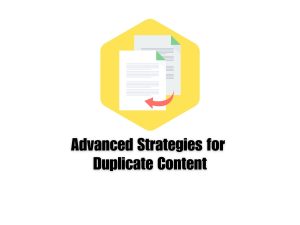
Case Studies: Successful Usage of Video Scripts
In the digital age, video content has become an integral part of online communication strategies for businesses and organizations across various industries. While videos are
The landscape of search engine optimization (SEO) is always evolving, with many factors contributing to a website’s ranking. One variable with a smaller yet still significant impact on website visibility is the meta description. This short snippet of text can persuade users to visit your site over others and boost your organic traffic. This blog post will explore the importance of meta descriptions, how to leverage keywords within them, and tips for optimizing meta descriptions for SEO benefit.
A meta description is an HTML attribute that provides a brief summary of a webpage’s content. It appears in search engine result pages (SERPs) below the title tag and URL and typically ranges from 150-160 characters. The primary purpose of a meta description is to entice users to click on your link by briefly describing the content they will find on your site.
Although Google has officially stated that meta descriptions are not a direct ranking factor, they still carry importance for SEO through indirect means:
Click-Through Rate (CTR): A well-written meta description with targeted keywords can increase the likelihood that users will click on your website link. This higher CTR can improve your ranking in SERPs, as search engines view sites with high CTRs as relevant and useful to users.
User Experience: By utilizing relevant keywords in your meta description, users will know that your content aligns with their search query. This can lead to higher engagement once they visit your site and potentially better conversions.
Be Mindful of Length
Keep your meta description between 150-160 characters. This ensures that your complete description will display without being truncated in SERPs, which can negatively affect user experience.
Use Relevant Keywords
Incorporate your main target keyword or its variations within your meta description. This reinforces the connection between the user’s search query and your content, increasing the likelihood of a click.
Maintain a Natural Tone
When incorporating keywords, make sure your meta description reads naturally and doesn’t come across as overly optimized or spammy. Your primary focus should be conveying value and relevance to the user.
Write Unique Descriptions
Each of your webpages should have a unique meta description that accurately reflects its content. Duplicate meta descriptions can diminish your website’s SEO value and click-through rates.
Focus on Actionable Language
Make your meta description compelling by using actionable language and highlighting the benefits of your content. This can encourage users to click on your link and visit your site.
Monitor and Test Performance
Regularly monitor and analyze your meta description performance using tools like Google Analytics and Google Search Console. Adjust and tweak your meta descriptions based on data-driven insights to optimize for better results.
While not a direct ranking factor, meta descriptions still hold value for your SEO strategy. By leveraging keywords in your meta descriptions and adhering to best practices, you can improve click-through rates, enhance user experience, and ultimately boost your website’s organic traffic. Remember to strike a balance between keyword inclusion and natural, compelling language that entices users to click on your link in the SERPs.

In the digital age, video content has become an integral part of online communication strategies for businesses and organizations across various industries. While videos are

Duplicate content refers to identical or similar content that appears on multiple URLs within a website or across different websites. While duplicate content is common





“LeadsView did an excellent job with my project and will definitely recommend. Easy to work with, flexible and good quality of work. I am more than happy to recommend them."




















Copyright 2023 © LeadsView. All Rights Reserved
